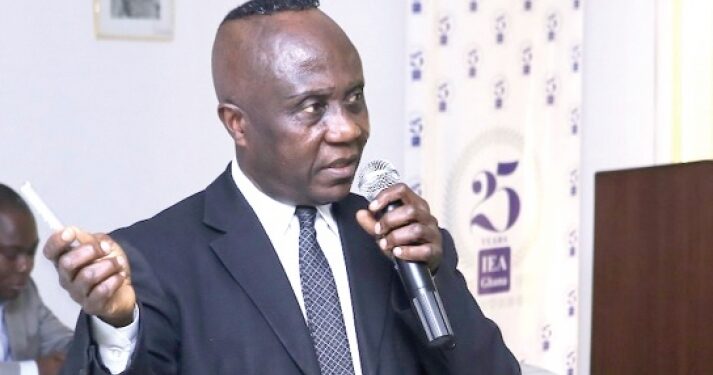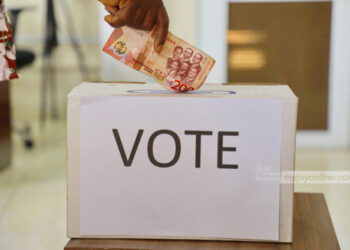Dr. John Kwakye, the Director of Research at the Institute of Economic Affairs (IEA), has expressed concerns about the state of the Ghanaian economy, stating that it is being adversely affected by high taxes and interest rates, which he attributes to fiscal indiscipline.
Writing on his X platform, Dr. Kwakye pointed out that “the economy is being strangulated by high taxes and interest rates, both the result of fiscal indiscipline.”
Dr. Kwakye raised questions about the contradiction between the government’s promise to shift the economy from a focus on taxation to one centered on production. He noted that, despite these promises, the government has implemented additional taxes as a means of generating revenue. This apparent discrepancy between the promised shift and the introduction of more taxes has led to his concern about the economic direction the country is taking.
The commentary from Dr. Kwakye underscores the ongoing debate about the economic policies and strategies employed by the government and the resulting impact on businesses, individuals, and the overall economic landscape in Ghana.
He added, “Can we count how many taxes this government has introduced? Is that how you change policy from taxation to production? No wonder real GDP growth is estimated to be just 2.3% in 2023 and projected to be 2.8% in 2024.”
In a similar issue, Franklin Cudjoe, the Founding President of IMANI Africa, has emphasized the need for the next administration after the 2024 general elections to undertake significant efforts in rationalizing the taxation system in Ghana. He suggested that the incoming administration must carefully consider whether to continue growing the economy through the imposition of various levies.

Mr. Cudjoe highlighted the imperative for the next administration to evaluate and potentially relax some of the taxes introduced by the current government. He emphasized the importance of protecting and encouraging the productive elements of the economy. According to Mr. Cudjoe, the current administration has extensively taxed various aspects of economic activities, leaving little room for the next government to impose additional levies on the people.
Observing the widespread taxation implemented by the current government, Mr. Cudjoe pointed out that almost everything in Ghana has been subject to taxation. He expressed concerns about the extensive use of taxation as a means to revitalize the economy, citing examples such as the introduction of Value Added Tax (VAT) on electricity consumption.
“I thought that the next administration may not even have the opportunity to tax anything at all because this administration has taxed us almost to a halt. It is in that spirit that I said the next administration must be pitying.
“Clearly speaking, if the next administration has plans to develop this country through taxation, I am sure people will start asking questions as to whether we haven’t really reached the zenith of taxation in this country.
“This means the next administration must do a lot of hard work, rationalize the taxation system we have right now, and decide whether they want to continue to grow the economy through enterprise support, which will mean that they will have to relax some of the taxes that we already have or they may have to rationalize the taxes that we have right now in order to ensure that the productive elements of the economy are protected and encouraged to grow.
“Otherwise, as we all know, we are in a bind right now, and the economy is not going to get better until 2028; that is the forecast we know.”
These comments from Franklin Cudjoe contribute to the ongoing discourse on fiscal policies and taxation strategies in Ghana, raising important considerations for the future administration’s economic approach.
































